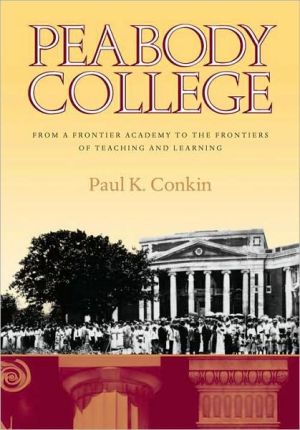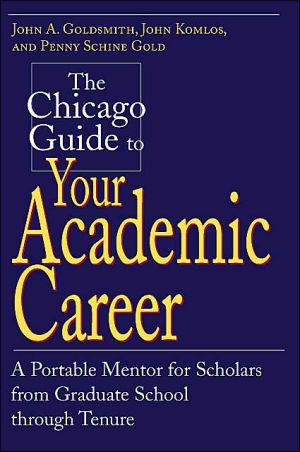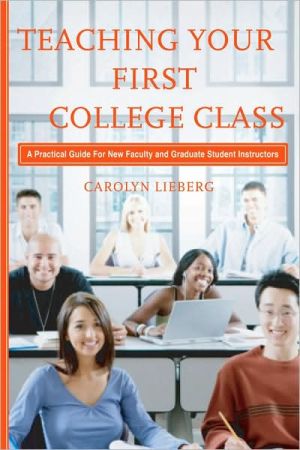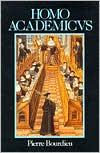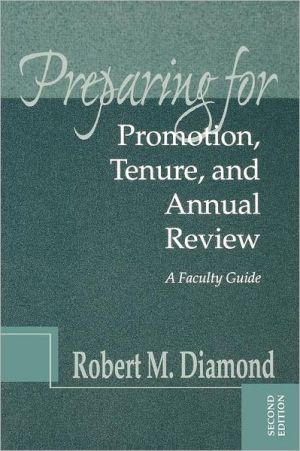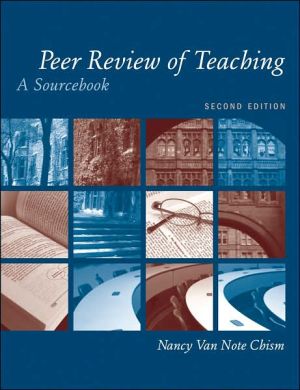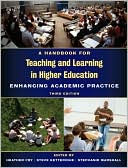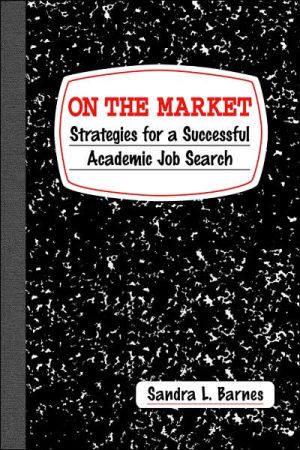Academic Disciplines: Holland's Theory and the Study of College Students and Faculty
Using as a framework the "theory of careers" developed by John L. Holland, the authors of this volume examine the patterns of student stability and change inherent in the college experience, as well as the variations in professional attitudes and behaviors of college faculty. Their goal is to learn more about what colleges and universities might do to facilitate the retention, satisfaction, and learning of their students.\ For example, why should faculties split over student-oriented teaching...
Search in google:
Using as a framework the "theory of careers" developed by John L. Holland, the authors of this volume examine the patterns of student stability and change inherent in the college experience, as well as the variations in professional attitudes and behaviors of college faculty. Their goal is to learn more about what colleges and universities might do to facilitate the retention, satisfaction, and learning of their students.For example, why should faculties split over student-oriented teaching strategies, one group favoring the formal, structured classroom, the other a freer, more spontaneous environment? Why do some undergraduates become independent thinkers with strong analytical, mathematical, and scientific competencies while others develop powerful interpersonal and group leadership skills?Holland's theory—at its core a person-environment fit theory—assumes that there are six personality types and six analogous academic environments and that the educational persistence, satisfaction, and achievement of students are a function of the congruence or "fit" between students and their academic environments. The authors also assume that there are circumstances under which the environments of the major field exert more influence on students than do the students' own personality traits. Applying Holland's theory to distinctive clusters of academic disciplines, the authors have found that the answers to such fundamental questions as those asked above emanate from a basic understanding of the influences of academic disciplines and the manner by which they shape the patterns of thought and behavior of both college students and faculty.Academic Disciplines will benefit researchers and graduate students who study college students and faculty, as well as administrators and policymakers responsible for the performance of colleges and universities.
\ From the Publisher\ This book will exert a strong influence on the next generation of higher education research. It should be a 'must read' for higher education scholars and scholarly practitioners.\ --Don Hossler, Indiana University\ This is an elegant work of the first-rank that should be read by anyone interested in the impact of college on students.\ --Ernest Pascarella, University of Iowa\ This volume provides readers with something rare: a blend of conceptual clarity, sophisticated analysis, lucid writing, and provocative conclusions. I recommend it wholeheartedly to educators interested in understanding and working within the diversity of our shared enterprise.\ --James C. Hearn, University of Minnesota\ \ \
